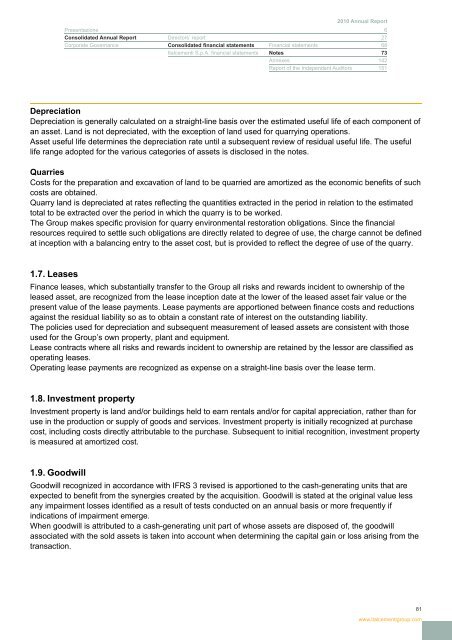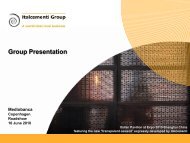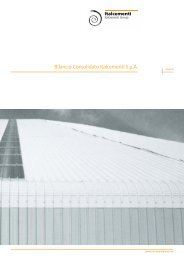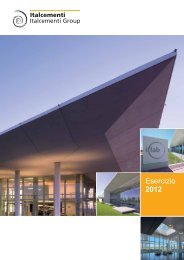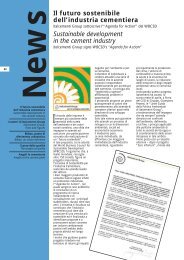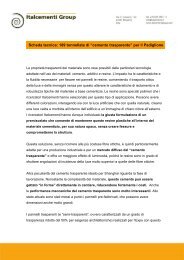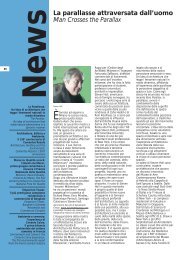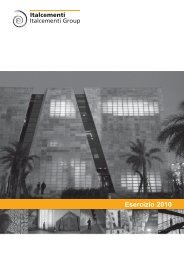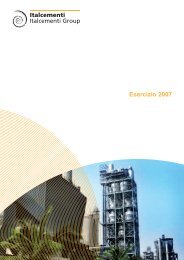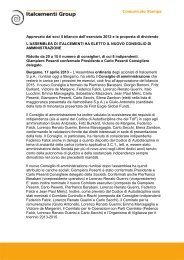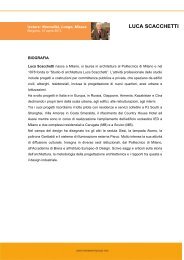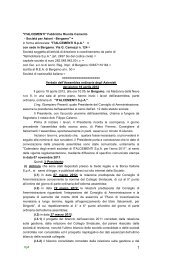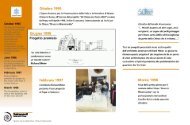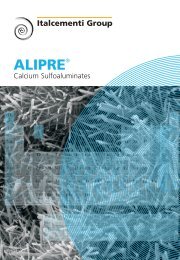Report 2010 - Italcementi Group
Report 2010 - Italcementi Group
Report 2010 - Italcementi Group
Create successful ePaper yourself
Turn your PDF publications into a flip-book with our unique Google optimized e-Paper software.
<strong>2010</strong> Annual <strong>Report</strong><br />
Presentazione 6<br />
Consolidated Annual <strong>Report</strong> Directors’ report 27<br />
Corporate Governance Consolidated financial statements Financial statements 68<br />
<strong>Italcementi</strong> S.p.A. financial statements Notes 73<br />
Annexes 142<br />
<strong>Report</strong> of the Independent Auditors 151<br />
Depreciation<br />
Depreciation is generally calculated on a straight-line basis over the estimated useful life of each component of<br />
an asset. Land is not depreciated, with the exception of land used for quarrying operations.<br />
Asset useful life determines the depreciation rate until a subsequent review of residual useful life. The useful<br />
life range adopted for the various categories of assets is disclosed in the notes.<br />
Quarries<br />
Costs for the preparation and excavation of land to be quarried are amortized as the economic benefits of such<br />
costs are obtained.<br />
Quarry land is depreciated at rates reflecting the quantities extracted in the period in relation to the estimated<br />
total to be extracted over the period in which the quarry is to be worked.<br />
The <strong>Group</strong> makes specific provision for quarry environmental restoration obligations. Since the financial<br />
resources required to settle such obligations are directly related to degree of use, the charge cannot be defined<br />
at inception with a balancing entry to the asset cost, but is provided to reflect the degree of use of the quarry.<br />
1.7. Leases<br />
Finance leases, which substantially transfer to the <strong>Group</strong> all risks and rewards incident to ownership of the<br />
leased asset, are recognized from the lease inception date at the lower of the leased asset fair value or the<br />
present value of the lease payments. Lease payments are apportioned between finance costs and reductions<br />
against the residual liability so as to obtain a constant rate of interest on the outstanding liability.<br />
The policies used for depreciation and subsequent measurement of leased assets are consistent with those<br />
used for the <strong>Group</strong>’s own property, plant and equipment.<br />
Lease contracts where all risks and rewards incident to ownership are retained by the lessor are classified as<br />
operating leases.<br />
Operating lease payments are recognized as expense on a straight-line basis over the lease term.<br />
1.8. Investment property<br />
Investment property is land and/or buildings held to earn rentals and/or for capital appreciation, rather than for<br />
use in the production or supply of goods and services. Investment property is initially recognized at purchase<br />
cost, including costs directly attributable to the purchase. Subsequent to initial recognition, investment property<br />
is measured at amortized cost.<br />
1.9. Goodwill<br />
Goodwill recognized in accordance with IFRS 3 revised is apportioned to the cash-generating units that are<br />
expected to benefit from the synergies created by the acquisition. Goodwill is stated at the original value less<br />
any impairment losses identified as a result of tests conducted on an annual basis or more frequently if<br />
indications of impairment emerge.<br />
When goodwill is attributed to a cash-generating unit part of whose assets are disposed of, the goodwill<br />
associated with the sold assets is taken into account when determining the capital gain or loss arising from the<br />
transaction.<br />
81<br />
www.italcementigroup.com


